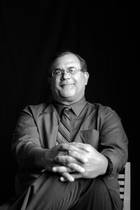
Richard N. Velotta
Related content
It is going to take a little longer for us to find out how the Nevada Tourism Commission plans to brand the state and what its new advertising tagline will be.
The plan was for Burson-Marsteller, the state’s New York-based public relations company, to unveil both at this week’s Governor’s Conference on Tourism in Sparks, according to state Tourism Director Claudia Vecchio. But the announcement got postponed.
The commission has been working on the project for more than a year. Two companies have been hired to research and refine ideas about what branding will resonate with Nevada’s visitors.
Burson-Marsteller is getting a big check — $3 million for two years’ work — to try to push Nevada to the top of everybody’s list as THE place to visit.
To Las Vegans, branding Nevada may not be that big a deal. After all, our city has the Las Vegas Convention and Visitors Authority to sell Southern Nevada. The Tourism Commission’s primary mission is to help the state’s rural communities attract people to some of Nevada’s lesser-known destinations.
Still, spending $3 million in tax dollars is a pretty hefty sum for a marketing campaign. Though to be fair, these tax dollars don’t come from Nevadans’ pockets. It is a room tax that tourists pay.
It’ll be interesting to get some perspective from tourism professionals about some of the big-ticket purchases the commission approved this year. In addition to the Burson-Marsteller contract, which got a lot of attention in July when the state Board of Examiners reviewed it, the commission authorized $600,000 to rescue the Reno air races through a state sponsorship.
The Burson-Marsteller deal was scrutinized after no in-state companies were named as finalists for the contract. Vecchio knew the deal would be controversial, but she explained that the commission followed every rule for reviewing the contracts and even had seven independent travel professionals as evaluators. On contracts like these, there’s no extra credit given for being in-state.
The $600,000 sponsorship for the Reno air races came after organizers discovered in May that their insurance premium was going to skyrocket after a crash at the 2011 show killed 11 people and injured 69. Organizers went to the state in desperation, and commissioners approved the spending.
Now, the question is: Was it worth it?
The state’s travel website is mentioned prominently as a sponsor. But should the state have supported the event at that level?
First, it is a Reno event. Why didn’t Reno resorts and the Reno-Sparks Convention and Visitors Authority fund it?
Second, how will the commission answer to other rural communities that get no funding for their events?
Finally, if an event in Las Vegas were in dire financial straits, would the state come to its rescue?
I’ll be listening for the buzz at this week’s conference.